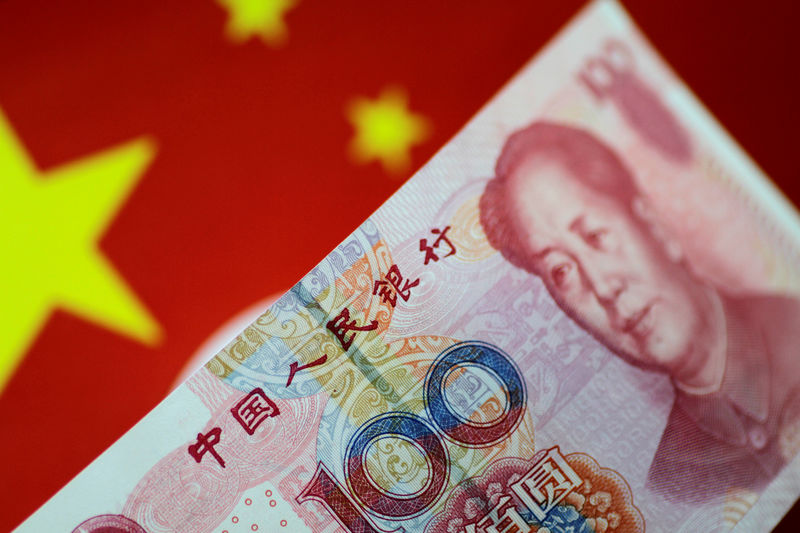 © Reuters. FILE PHOTO: Illustration photo of a China yuan note
© Reuters. FILE PHOTO: Illustration photo of a China yuan noteBEIJING (Reuters) – China’s foreign exchange regulator said on Friday that it will steadily push forward with the convertibility of its capital account, and at the same time fend off risk from cross-border capital flows.
The head of the State Administration of Foreign Exchange (SAFE), Pan Gongsheng, made the comments in a meeting with foreign companies on Thursday on deepening China’s foreign exchange reforms and improving business conditions.
Foreign firms that participated in the meeting in Beijing included HSBC PLC (L:), Standard Chartered (L:), DBS (SI:), Deutsche Bank (DE:), auditing firm PricewaterhouseCoopers LLP, BMW (DE:) and Schneider Electric (PA:) [SCELIA.UL].
President Xi Jinping pledged in April to further widen access to the country’s economy this year, as China marks the 40th year of its opening up.
In recent weeks, China said it will resume two key outbound investment schemes, allowing domestic financial institutions to invest in overseas securities.
The suspension of those outbound investment schemes came after gyrations in Chinese stock and currency markets in 2015 prompted a capital flight that led Beijing to burn its vast foreign exchange reserves by nearly $1 trillion to shore up the yuan and reduce outflows.
China had also stepped up its crackdown on outbound investment deals that authorities suspected were highly speculative and were being used to circumvent capital controls.
Over the past year, Chinese equities have steadied while the yuan
Outbound investment deals have also seen double-digit growth in the first quarter this year after falling 29.7 percent in 2017.
China’s forex regulator last month also widened the quotas of two other outbound investment schemes in Shanghai and Shenzhen as part of the government’s efforts to liberalize financial markets.
Fusion Media or anyone involved with Fusion Media will not accept any liability for loss or damage as a result of reliance on the information including data, quotes, charts and buy/sell signals contained within this website. Please be fully informed regarding the risks and costs associated with trading the financial markets, it is one of the riskiest investment forms possible.
Source: Investing.com




























